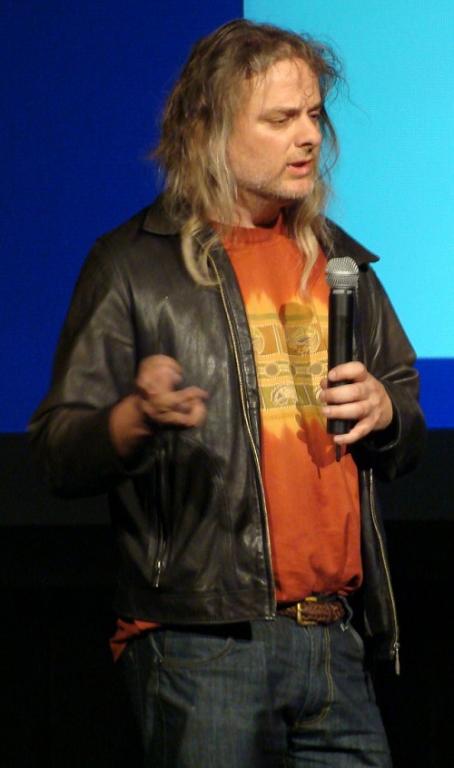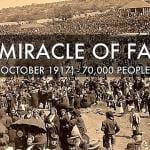
“Anthrotheist” responded to my paper, Scripture, Science, Genesis, & Evolutionary Theory: Mini-Dialogue with an Atheist, which was a discussion with him. He has been perfectly congenial and a worthy dialogue partner for at least eight months now (I have seven dialogues with him posted on my Atheism page): thus proving that atheist-Christian dialogue is entirely possible, if both sides will simply listen to each other and be charitable and civil. It’s very rare, but it can and does occur, and that’s very gratifying to me. I salute my atheist friend. His words will be in blue.
*****
It’s taken me some time to contemplate what you have in the past referred to as bias, but I feel like that time has been fruitful.
Great! I commend you for your willingness to undertake such contemplation. Thanks for “listening.”
I have come to accept the modern scientific assumption that everything that we can observe can be explained through the examination of natural forces.
This is, of course, materialism and empiricism, which is not by any stretch of the examination either 1) proven, or 2) self-evident. There are even (as you likely know) atheists who are not materialists, and are dualists (David Chalmers is a prominent example). And your own empiricist view necessarily starts with unproven, non-materialistic axioms: that you accept without proof to even have the view that you have in the first place. I would argue that this makes your view logically self-defeating or circular, but that’s another huge discussion.
Science started within a Christian milieu, and several of its initial premises are far more consistent with that view, than with materialism. Things like logic and mathematics are also non-empirical: yet absolutely essential as starting-blocks of science and empirical observation and investigation. I’ve written about these issues and closely related ones many times:
“No One’s Perfect”: Scientific Errors of Galileo and 16th-17th Century Cosmologies [7-29-10]
Christianity: Crucial to the Origin of Science [8-1-10]
33 Empiricist Christian Thinkers Before 1000 AD [8-5-10]
Who Killed Lavoisier: “Father of Chemistry”? [8-13-10]
Christians or Theists Founded 115 Scientific Fields [8-20-10]
Albert Einstein’s “Cosmic Religion”: In His Own Words [originally 2-17-03; expanded greatly on 8-26-10]
*
That is a rejection of the supernatural, which by definition is any force or agent that affects the natural world while remaining beyond the reach of natural means of investigation (like science).
It’s not totally beyond the reach of scientific investigation at all. Reputed miracles can be investigated with the usual scientific means, and this has frequently happened. When challenged by another atheist, I gave the example of documented scientific verification of miracles at Lourdes: the Marian shrine in France (I received no serious response to that). In another paper (a reply to you), I provided many other examples and books and articles having to do with miracles. The atheist has to explain things like incorruptible bodies (we have hundreds of saints whose bodies haven’t decayed), eucharistic miracles, the Shroud of Turin, the miracle of the sun at Fatima (witness my multiple thousands), many types of healings, etc.
My own son, Paul, experienced a healing of serious back and neck problems, in conjunction with eucharistic adoration. He talked about it in a You Tube video. My wife Judy experienced a healing of her severe back pain as a result of scoliosis (a 51% curvature; she had to wear a metal back brace for several years as a child). These things are not nothing. You may believe they are, but it remains true that in both cases (my wife and son), there was severe pain, and now there is not. The changes came about in religious settings, not hospitals or doctors’ offices. It’s two cases just in my own family: and these can be multiplied in the thousands.
The atheist is forced by his or her own false premises and thinking, to simply ignore and dismiss all this evidence. How ironic, since we are supposedly the ones who cavalierly dismiss evidence. In these instances we have both legal-type eyewitness testimony, and scientific verification that something unexplainable has occurred that science cannot explain. You guys ignore it (which impresses no one); we interpret it according to our view that miracles are possible: based on observation of actual events.
This assumption that I’ve accepted necessarily rejects the possibility that the Bible is a divinely inspired word of God, and that therefore all the accounts in the Bible are historical references at best and nothing more than allegories of first-century knowledge and morality at worst.
Yes it does.
This bias of mine prevents me from accepting at face value any claims of truth or wisdom that are derived from a person’s self-described spiritual revelation.
That’s what the Catholic Church does, too. It is highly skeptical of any claim to miracle, or Marian apparitions, etc., and often spends many years of investigation to determine whether it is reasonable to believe that a miracle occurred. There are many false claims.
It may be a genuine and valuable revaluation, but a mundane one derived from the person’s own synthesis of their knowledge and experiences.
Yep. It may be that; and it may not be.
It also prevents me from accepting at face value claims of miraculous phenomena; again, there may be something unexplained at work but it must exist in the natural world and therefore discoverable by natural investigation (again, science).
You have made an assumption that logically reduces to circular reasoning (a logical statement about what “must” be which is by no means self-evident or unquestionable). But again, the theist is pro-science every bit as much as the atheist. We also understand better that science is not the sun total of all knowledge, and so we are more objective in utilizing it. Nor are we tempted to make it our virtual religion, because we already have a religion.
I have also begun to recognize the biases of Christians as well. They accept the assumptions that the supernatural exists, that it includes a creator God, that creator God is the one from the Bible, and that the creator God of the Bible is good, loving, and just.
Yes, and we can present many solid reasons for why we believe all those things: reasons that can stand up to scrutiny, and show themselves to be more plausible and worthy of belief than alternatives. My job as an apologist is to present and explain and defend such reasons: just as I am doing right now.
(I’m not quite sure if that is a longer list of particular assumptions compared to mine, or whether I am being far more particular in examining others’ assumptions.)
Fair enough.
As far as I can tell, these assumptions don’t necessarily cause Christians to reject any particular knowledges or wisdoms (though it can). Where the naturalist/science set of assumptions leads to the rejection of conclusions that don’t fit into its paradigm, Christians’ biases seem to generate preconceived conclusions.
Every thinker does the same thing. We all interpret the world according to a pre-existing set of assumptions or a worldview that (inevitably) began with unproven and unprovable axioms). The modern Popperian approach to scientific theory consciously takes precisely this approach. A scientific theory is adopted at first, and then it is tested in order to try to falsify it. The Wikipedia article on the philosopher of science Karl Popper explains:
Popper coined the term “critical rationalism” to describe his philosophy. Concerning the method of science, the term indicates his rejection of classical empiricism, and the classical observationalist-inductivist account of science that had grown out of it. Popper argued strongly against the latter, holding that scientific theories are abstract in nature, and can be tested only indirectly, by reference to their implications. He also held that scientific theory, and human knowledge generally, is irreducibly conjectural or hypothetical, and is generated by the creative imagination to solve problems that have arisen in specific historico-cultural settings.
Logically, no number of positive outcomes at the level of experimental testing can confirm a scientific theory, but a single counterexample is logically decisive; it shows the theory, from which the implication is derived, to be false. To say that a given statement (e.g., the statement of a law of some scientific theory)—call it “T”—is “falsifiable” does not mean that “T” is false. Rather, it means that, if “T” is false, then (in principle), “T” could be shown to be false, by observation or by experiment. Popper’s account of the logical asymmetry between verification and falsifiability lies at the heart of his philosophy of science. It also inspired him to take falsifiability as his criterion of demarcation between what is, and is not, genuinely scientific: a theory should be considered scientific if, and only if, it is falsifiable. This led him to attack the claims of both psychoanalysis and contemporary Marxism to scientific status, on the basis that their theories are not falsifiable.
This conclusion-at-the-start position results in a lot of intellectual work in order to figure out how observations and evidence must come together to support that conclusion.
Yes: again, just as virtually all thinkers do. We have premises and presuppositions and thus, biases that are in line with those premises. We accept the premises unless and until they are decisively falsified.
In short, people like me have biases that lead us to reject answers that don’t fit our worldview, while people like you have biases that lead you to dovetail observed phenomena into the answers your worldview requires.
We both do exactly the same thing, but we start from different premises (you irrationally limit testable reality to material and natural forces — empiricism — and we do not).
One example that I have noticed is how many things in society end up being blamed on the acceptance of homosexuality in our culture; the fact is, there aren’t enough homosexuals to make that big of an impact and people who aren’t homosexuals don’t experience any change to their day-to-day life due to greater acceptance of behavior that they never engage in themselves. But because homosexuality is sinful in Christianity, there must be some negative consequence of its acceptance by society, and everything from rape culture to priest abuses are offered as evidence supporting that necessary conclusion.
All we’re saying is that there is such a thing as the natural order. The reproductive organs were clearly designed for each other and to produce offspring: either by materialistic evolution or by God or by God through evolution or some other creative process. When this is rejected and other sorts of sexuality are practiced, there are (precisely as we would have predicted) dire health consequences (an objective deleterious effect: not some religious anathema): as I have written about.
What Catholics and many other Christians oppose is a radical redefinition of what constitutes moral sex; and the notion of unisexism, or no essential, ontological difference between the genders, and the redefinition of marriage (and all of this has come about due to a consistent internal, anti-traditional, radically secularist logic). That goes far beyond only homosexuality.
As for the sexual abuse crisis in the Catholic Church: we didn’t make it what it is. The fact is (documented in many polls and surveys), that 80% of the victims were male and usually young adults (not children). Sorry: that is homosexual sex, not heterosexual. So, for example, the former Cardinal McCarrick, who was just defrocked / laicized, went after young [male] seminarians. That’s the usual pattern. Would you have us believe that this is heterosexual excess or wrongdoing? I don’t see how. So it is what it is.
If you say, “See?! Catholics want to scapegoat homosexuals for their own problems of abuse because they hated homosexuals in the first place!”, we reply that we are simply blaming the actual perpetrators for doing what they did: priests or bishops trying to pick up young men for sexual purposes, according to the well-known phenomenon of widespread homosexual rampant promiscuity.
That’s not even blaming all homosexuals or homosexuality in general, by a long shot. If someone has a homosexual orientation, the Church says that is not a sin. They have to act upon that and engage in sexual acts that we believe are unnatural and immoral, to be blamed according to our moral theology. There is also lust before that, but I digress. I made these distinctions of celibate vs. active homosexual clear in my article, Is the Catholic Church “Against” Gay Priests?
You can’t have it both ways. You can’t have your cake and eat it, too. If a non-Catholic like you wants to blame the Catholic Church for its sexual abuse crisis (and believe me, we Catholics are as furious and disgusted about it as any outsider), then you can’t pretend that homosexual promiscuity and practices contrary to what our Church teaches, have not played a key role in the crisis and scandal. There are Catholics who have their head in the sand and pretend that all of this is a heterosexual excess, but this doesn’t comport with the reality of what we know about the past abuse. See the documentation in my article above about gay priests.
***
Photo credit: David Chalmers (b. 1966): famous dualist (non-materialist) atheist. Photo by Zereshk [Wikimedia Commons / Creative Commons Attribution 3.0 Unported license]
***
















